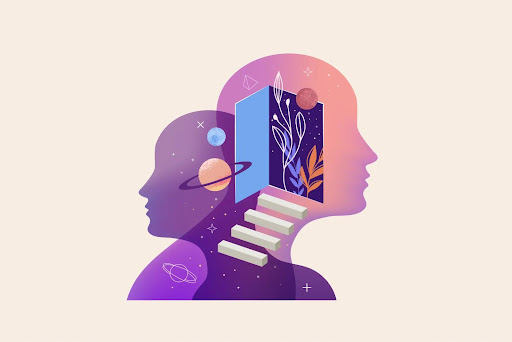The Rise of Psilocybin Medication: A New Era in Mental Health Treatment

In recent years, psilocybin medication has emerged as a groundbreaking treatment option for a variety of mental health disorders. Once relegated to the realm of counterculture and considered taboo, psilocybin—the active compound in psychedelic mushrooms—is now gaining serious attention from scientists, medical professionals, and even regulatory bodies. As a core component of psychedelic medicine, psilocybin offers a promising alternative to conventional psychiatric drugs, particularly in cases where traditional treatments have failed.
What is Psilocybin?
Psilocybin is a naturally occurring psychedelic compound found in over 180 species of mushrooms. Often referred to as “magic mushrooms,” these fungi have been used for centuries in indigenous spiritual rituals, particularly in Mesoamerica. Once ingested, psilocybin is converted in the body to psilocin, which interacts with serotonin receptors in the brain, altering perception, mood, and cognition.
Understanding Psilocybin Medication
The Scientific Basis
Psilocybin medication is based on controlled, clinical use of psilocybin in specific doses and therapeutic contexts. Unlike recreational use, psilocybin administered in medical settings is carefully monitored by trained professionals, ensuring both safety and efficacy. It is typically combined with psychological support, such as guided therapy sessions, to maximize its therapeutic benefits.
Mechanism of Action
Psilocybin primarily acts on the 5-HT2A serotonin receptors in the brain. This interaction results in changes in neural connectivity, increased introspection, and altered states of consciousness. Importantly, psilocybin has been shown to “reset” brain activity in people suffering from depression and anxiety, allowing them to break free from destructive thought patterns.
The Role of Psychedelic Medicine
What is Psychedelic Medicine?
Psychedelic medicine is a growing field that explores the use of psychedelic substances—such as psilocybin, LSD, MDMA, and ketamine—for therapeutic purposes. These compounds, once criminalized and stigmatized, are now being reconsidered as powerful tools in the treatment of mental health disorders, including PTSD, depression, anxiety, and addiction.
The Psilocybin Revolution
Among all psychedelic substances, psilocybin stands out due to its relatively low risk profile, natural origin, and profound therapeutic effects. Clinical trials conducted at institutions like Johns Hopkins University and Imperial College London have shown that psilocybin can significantly reduce symptoms of major depressive disorder (MDD), treatment-resistant depression, and end-of-life anxiety in terminally ill patients.
Clinical Applications of Psilocybin Medication
Depression and Anxiety
Perhaps the most compelling use of psilocybin medication is in the treatment of depression and anxiety. Traditional antidepressants can take weeks to show effects and may come with significant side effects. In contrast, a single dose of psilocybin, when paired with guided therapy, has shown to produce lasting improvements in mood and outlook, sometimes after just one or two sessions.
PTSD (Post-Traumatic Stress Disorder)
Early studies suggest that psilocybin, as part of psychedelic medicine, may help patients process traumatic experiences in a safe and therapeutic setting. By altering brain connectivity and emotional processing, psilocybin allows individuals to revisit traumatic memories without the overwhelming emotional response that usually accompanies them.
Addiction and Substance Use Disorders
Research is also exploring the use of psilocybin in treating alcoholism, nicotine addiction, and opioid use disorder. In clinical settings, psilocybin sessions often lead to transformative experiences that help users reassess their behaviors and motivations. Combined with cognitive behavioral therapy (CBT), psilocybin has shown promising results in reducing substance dependence.
Benefits of Psilocybin Medication Over Traditional Treatments
Fast-Acting and Long-Lasting
Unlike SSRIs and other antidepressants that require continuous use, psilocybin often works with just one or two sessions. The effects are not only rapid but can also be long-lasting, sometimes enduring for months after treatment.
Minimal Side Effects
In controlled environments, psilocybin has a favorable safety profile, with minimal risk of addiction or severe side effects. Nausea and temporary anxiety may occur, but these are typically short-lived and manageable within a therapeutic setting.
Improved Emotional Insight
Many patients report increased emotional openness, greater self-awareness, and a more profound connection to life and others following psilocybin therapy. These psychological benefits go beyond symptom relief, touching on aspects of human experience that traditional medications often neglect.
Challenges and Controversies
Legal and Regulatory Barriers
Despite promising research, psilocybin remains a Schedule I substance in many countries, including the United States. This classification implies a high potential for abuse and no accepted medical use, making it difficult for researchers to conduct large-scale studies and for patients to access the treatment legally.
The Risk of Misuse
While psilocybin medication is safe in clinical settings, recreational use without supervision can carry risks, including psychological distress or triggering underlying mental health conditions like schizophrenia. Education and regulation will be crucial in ensuring the safe integration of psilocybin into mainstream medicine.
The Future of Psilocybin in Medicine
Decriminalization and Medical Access
Several cities and states in the U.S., such as Oregon and Colorado, have already taken steps to decriminalize or even legalize the therapeutic use of psilocybin. These pilot programs could serve as models for broader reforms, paving the way for psilocybin-assisted therapy clinics and licensed therapists.
Ongoing Research and Innovation
Global interest in psychedelic medicine is rapidly increasing, with new clinical trials, biotech startups, and academic centers dedicated to studying these compounds. The next decade may witness FDA approvals, insurance coverage, and wider acceptance of psilocybin as a legitimate medical treatment.
Conclusion
The resurgence of interest in psilocybin medication marks a turning point in our approach to mental health. Backed by scientific evidence and fueled by societal demand for better treatments, psilocybin offers a new path for healing—one that integrates psychedelic medicine with psychotherapy and holistic care. While challenges remain in terms of legality, accessibility, and societal stigma, the potential benefits far outweigh the risks when used responsibly.
As we look to the future, psilocybin may not only revolutionize psychiatry but also change the way we understand the human mind, consciousness, and the nature of healing itself.





